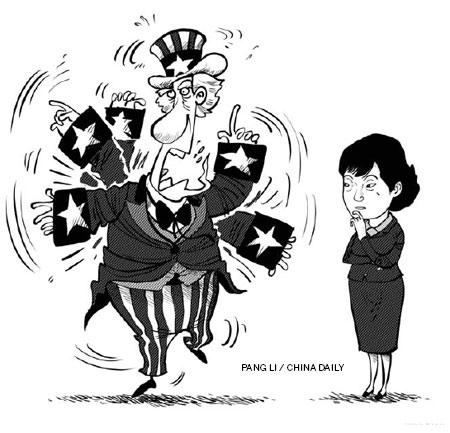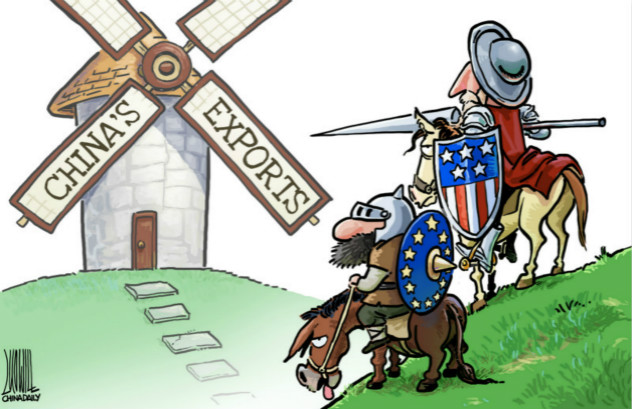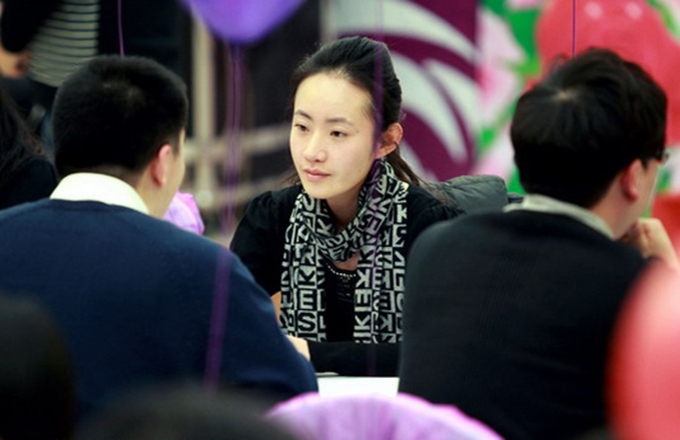Why Park must visit China first

The commitment of the Republic of Korea's president to a "confidence-building process on the Korean Peninsula" should set the agenda for the ROK's relations with China. And yet ROK President Park Geun-hye's government is mechanically replicating conventional thinking by laying emphasis on its alliance with the United States. As a result, instead of visiting China on her first official overseas trip, she will fly to the US.
The war threats of the Democratic People's Republic of Korea will be on top of Park's agenda during her visit to Washington in May, though some argue that the ROK-US military alliance has already exceeded its function of deterring the DPRK.
The issues Park will discuss in Washington include transfer of operational control from the Combined Force Command, established between Seoul and Washington in 1979, to the ROK military authority in 2015, revision of the bilateral nuclear agreement which has constrained the ROK's nuclear reprocessing activities, and implementation of extended deterrence against the DPRK's long-range missiles and nuclear warheads.
The ROK government already has various ad hoc committees and working groups on these issues, but the existing bilateral forums such as the Security Consultative Meeting and the Military Committee include many subcommittees which were established only recently.
Unfortunately little progress is likely to be made on these issues at Park's meetings with US President Barack Obama and Congressional leaders. Indeed, if her first official visit to the US simply showcases the closeness and warmth of bilateral relations on the 60th anniversary of the US-ROK alliance, it would not be a bad outcome.
In fact, the Americans may press her to contribute more toward deterring the DPRK and dealing with the rise of China. Although Pyongyang considers Washington its main enemy, Seoul has borne part of the costs of the US garrison in the ROK since 1991. The arguments in favor of increasing the ROK's contribution are strong: improving countermeasures against asymmetric threats from the DPRK, the ROK's participation in a regional missile defense network and a shrunken US defense capability after "sequestration". So Park may be forced to consider increasing the ROK's defense budget in the near future.
Park is unlike her predecessor Lee Myung-bak, who was unyielding toward the DPRK. That's why China now appears ready to respond to her fresh approach, provided that her "confidence-building process on the Korean Peninsula" is implemented and her government does more than just engaging with the DPRK. After the nuclear brinkmanship of the last few months, senior Chinese figures, including some in the People's Liberation Army, have hinted that they could meet with their ROK counterparts.
China has rebuked the DPRK for its provocative actions against the ROK and the US. But if Park changes her mind to please the US, as her predecessors did, China will surely take it strongly. China is the only country that can influence DPRK leaders, but only the ROK is in a position to end the long-term stalemate with the DPRK by supplying it with humanitarian aid without violating UN Security Council resolutions. This in itself is a good enough reason for Park to visit Beijing before Washington. Of course, there are other reasons too.
First, in a spirit of fresh cooperation, the new Chinese leadership - including the PLA leadership - led by President Xi Jinping would like to discuss the DPRK's actions with Park. President Park should visit China to find a way to break the cycle of tensions, to the benefit of all concerned.
Second, China appreciates the symbolic significance of early visits by new heads of state in the region to neighboring countries, for they reflect the status of their relations. Park should not neglect this golden opportunity to discuss issues of her choosing with Xi and other senior Chinese leaders. In fact, such discussions could lead to a mechanism to resolve the Korean Peninsula issue.
Third, Park should not raise China's hackles by putting unnecessary emphasis on the ROK-US military alliance beyond the Peninsula by visiting Washington first.
Fourth, if Park visits the US first, China will interpret it to mean that the ROK's foreign policy and national security strategy are still being formulated by people who favor Washington's interests at the expense of Beijing's concerns. At this critical time, she has to show that she understands China's anxieties by recognizing its changed attitude toward the Peninsula issue.
Instead of trying to strike a precarious balance between its relations with China and the US, the ROK would do better to strive for authentic trilateral security cooperation. So rather than visiting the US with empty hands, she could carry the fruits of her discussions with the Chinese leadership on the DPRK issue.
This is the time for Park to reconsider her overseas visits, because later she will become too busy reacting to the DRPK provocations. She cannot have a better way of fulfilling her pledge to build confidence on the Korean Peninsula than to reach out for trilateral cooperation between China, the ROK and the US. It's for Park now to seize the opportunity and give birth to a new diplomacy.
The author is senior research fellow at the Korea Institute for Maritime Strategy and visiting professor at Sejong University, Seoul.
(China Daily 04/10/2013 page9)





















